In which cases should an oxygen concentrator be used?
If you have an elderly family member who requires the use of an oxygen concentrator, it is important to consult a professional doctor first to ensure their health and safety. The following are some cases in which an oxygen concentrator may be used for the elderly:
- Individuals with pneumonia, asthma, chronic obstructive pulmonary disease, or cerebral circulatory insufficiency.
- Individuals with impaired breathing ability or lung function.
- Patients undergoing surgery.
- Vegetarians.
- Individuals with coal gas poisoning or chemical poisoning.
- Individuals with diseases such as hemangiomas, anemia, or atelectasis which result in a decrease in the number of red and white blood cells.
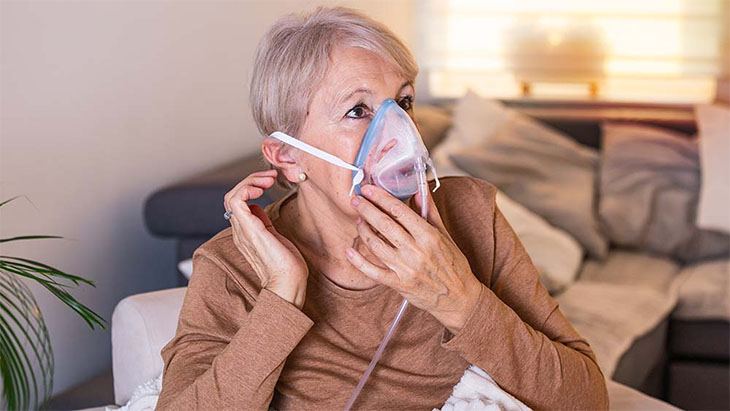
Is a home oxygen generator beneficial for the elderly?
A home oxygen concentrator is a valuable device for elderly individuals and those with lung-related diseases who experience shortness of breath and fatigue. Typically, patients in these cases may have low oxygen levels and high carbon dioxide levels in their blood. Using an oxygen concentrator can help ease breathing, improve overall health, and maintain their quality of life.

Reasons to have a home oxygen generator for the elderly
For families with elderly individuals suffering from lung-related diseases, it is advised to have a home oxygen generator. In addition to maintaining oxygen levels in the blood and improving breathing, an oxygen generator also offers various other benefits, such as:
- The machine offers multiple flow levels that can be adjusted according to the doctor’s recommendations.
- The oxygen threshold display in percentage (%) facilitates monitoring.
- The machine can be used for an extended period without the need for frequent replacements like traditional oxygen tanks.
- The machine is compact and easy to move.
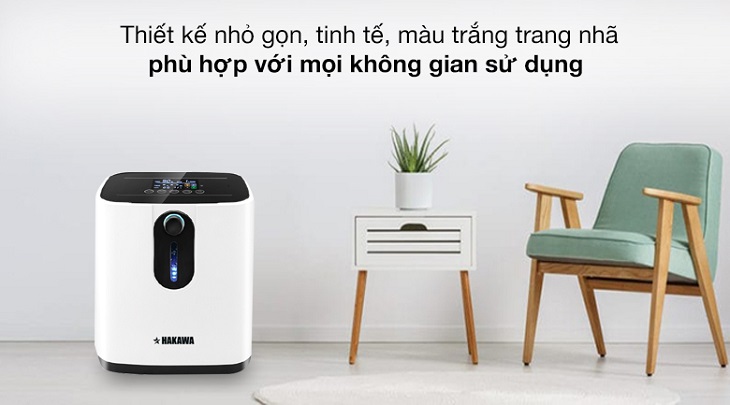
Notes for the safe use of a home oxygen concentrator
Consult a specialist doctor
Using an inappropriate amount of oxygen can lead to respiratory depression and adverse health effects. Therefore, it is crucial to consult a specialist, closely monitor the progress of the disease, and promptly inform the doctor of any unusual signs.

Select machine capacity according to the patient’s condition
Home oxygen generators are available in different capacities (in liters). Depending on the patient’s medical condition and the guidance of a doctor, the appropriate machine should be chosen. Using a machine with insufficient capacity for individuals with severe chronic lung disease may fail to provide enough oxygen, potentially worsening their condition.
Conversely, if the machine has excessive capacity and the patient only has a mild illness, it may result in excessive oxygen intake within a certain period, leading to respiratory depression. Therefore, it is crucial to select the appropriate machine capacity.
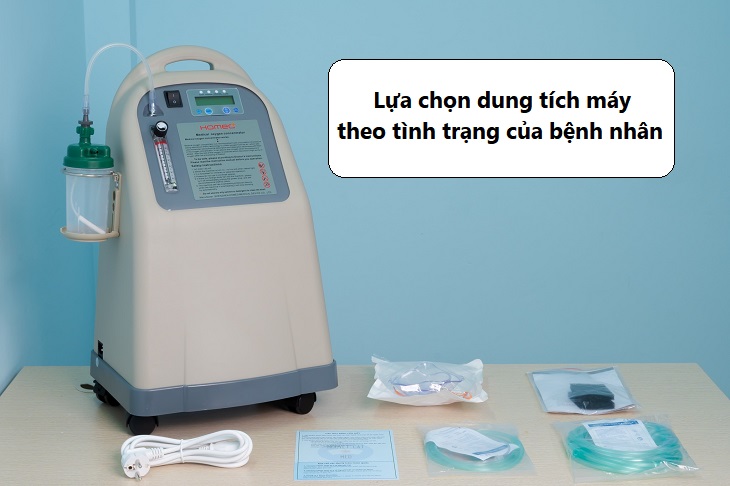
Adjust the pressure level to suit the patient’s level
The pressure level used with a home oxygen concentrator should be adjusted according to the doctor’s instructions. The recommended adjustments for different patient levels are as follows:
– For patients at level 1: Choose an oxygen flow rate of 2-2.5 liters per minute when using a 3-liter oxygen generator or 2 liters per minute when using a 5-liter oxygen concentrator.
– For patients at level 2: Choose an oxygen flow rate of 3-3.5 liters per minute when using a 3-liter oxygen generator or 3 liters per minute when using a 5-liter oxygen concentrator.
– For patients at level 3: Choose an oxygen flow rate of 3 liters per minute when using a 3-liter oxygen concentrator or 4-4.5 liters per minute when using a 5-liter oxygen generator.
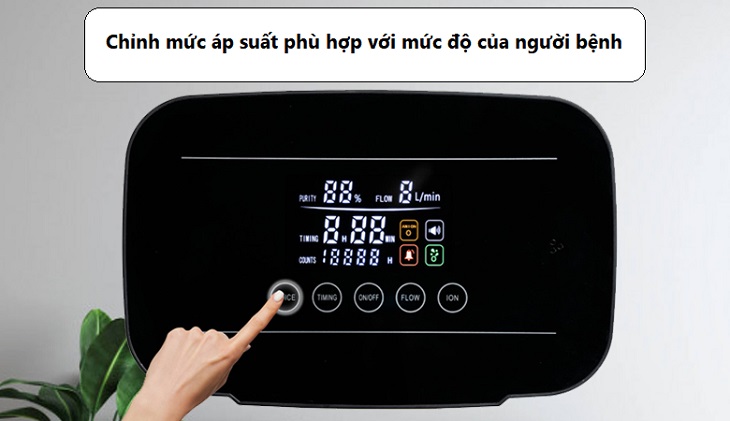
Check the quality of the machine
When purchasing a home oxygen generator, it is essential to check the product’s origin. Additionally, you can ask the staff to start up the machine to determine if it can consistently provide oxygen, check its noise level, and ensure the output oxygen threshold meets requirements. Ideally, select a product with an oxygen concentration purity between 90-96%.
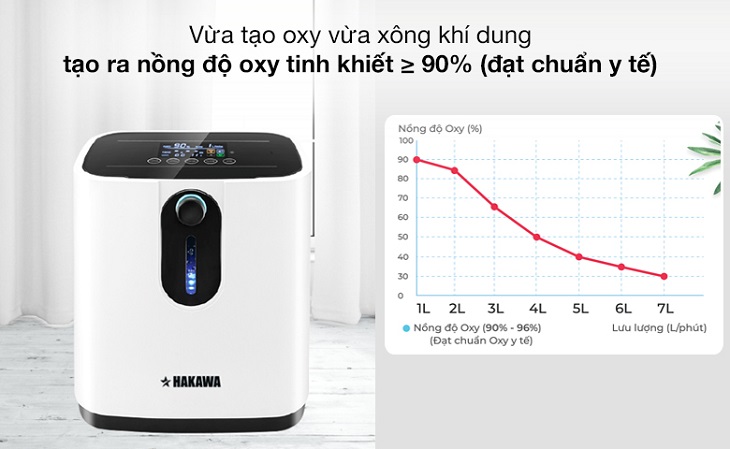
Regularly visit the doctor to evaluate treatment results
Before, during, and after using a home oxygen concentrator, patients should have regular check-ups and continuous support from respiratory specialists. It is advisable to schedule check-ups every 6 months at reputable hospitals or visit the nearest medical stations for re-diagnosis and appropriate treatment.

Is it Good to Use a Home Oxygen Generator? Safety Precautions to Consider
Oxygen generators are commonly used tools in healthcare facilities to aid in the treatment of illnesses. However, many households are unsure whether using an oxygen generator at home is beneficial. To find the answer, read our article on the effectiveness of using an oxygen generator at home. We also provide safety guidelines for proper usage.
Reduce joint pain in the elderly during cold weather with these 5 methods
Elderly people often experience more joint pain and stiffness during cold weather. Discover 5 effective ways to alleviate joint pain in the elderly when the weather turns cold.





































